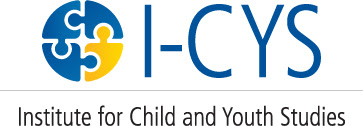CALL FOR PAPERS:
Child Studies in Asia-Pacific Contexts
ISSN: 2288-601X
Child Studies in Asia-Pacific Contexts (CSAC) is a multidisciplinary international journal that publishes papers on children’s development in diverse social and cultural contexts in Asia Pacific region. CSAC’s paramount aim is to examine biological, emotional, cognitive, social, and cultural development of children; the role of social and cultural contexts, such as family, educare setting, school, and community, in children’s development; the interaction between development and context; and its theoretical and practical implications, including social policies for children.
We publish in February and August and are now accepting papers for publication in the 2014 August issue.
The submission deadline for publication in the August issue is June 1, 2014.
To submit, please visit our homepage at www.e-csac.org
————————
Editorial Board: http://www.e-csac.org/
CHIEF EDITOR
Soon Hyung Yi, Seoul National University, Korea
EDITORIAL BOARDS
Catherine McBride-Chang, Chinese University of Hong Kong, Hong Kong
Feng-Ming Tsao, National Taiwan University, Taiwan
Gisela Trommsdorff, Universitat Konstanz, Germany
Ingrid Schoon, University of London, United Kingdom
Jean Phinney, California State University at Los Angeles, USA
Joseph Tobin, Arizona State University, USA
Judi Mesman, Leiden University, Netherlands
Jung-Sook Lee, University of New South Wales, Australia
Katariina Salmela-Aro, University of Helsinki, Finland
Kenneth H. Rubin, University of Maryland, USA
Leher Singh, National University of Singapore, Singapore
Marc H. Bornstein, National Institute of Child Health and Human Development, USA
Masako Ishii-Kuntz, Ochanomizu University, Japan
Min Ju Kang, Yonsei University, Korea
Mutsumi Imai, Keio University, Japan
Myoung Soon Kim, Yonsei University, Korea
Paul E. Jose, Victoria University of Wellington, New Zealand
Robert E. Emery, University of Virginia, USA
Sara Harkness, University of Connecticut, USA
Sing Lau, Hong Kong Baptist University, Hong Kong
Yanjie Su, Peking University, China
MANAGING EDITOR
Grace Chung, Seoul National University, USA
——————-
Important Features of CSAC:
Committed to SPEEDY review and publication
One of the most important features of CSAC is speedy review and rapid publication.
For all submitted manuscripts, we strive to complete the first round review within 3 weeks
and publish and accepted manuscript within 6 months of initial submission.
——————-
Authors’ Guidelines: http://www.e-csac.
+ All manuscripts must be prepared in English.
+ Review paper is warmly welcome.
+ Submit your paper through the CSAC website: www.e-csac.org
+ To expedite the review process, please format your reference as the guideline.
+ Please visit journal homepage for more information and to view our issues.
Best Regards,
Editorial Office of CSAC
Email: email.csac@gmail.com

